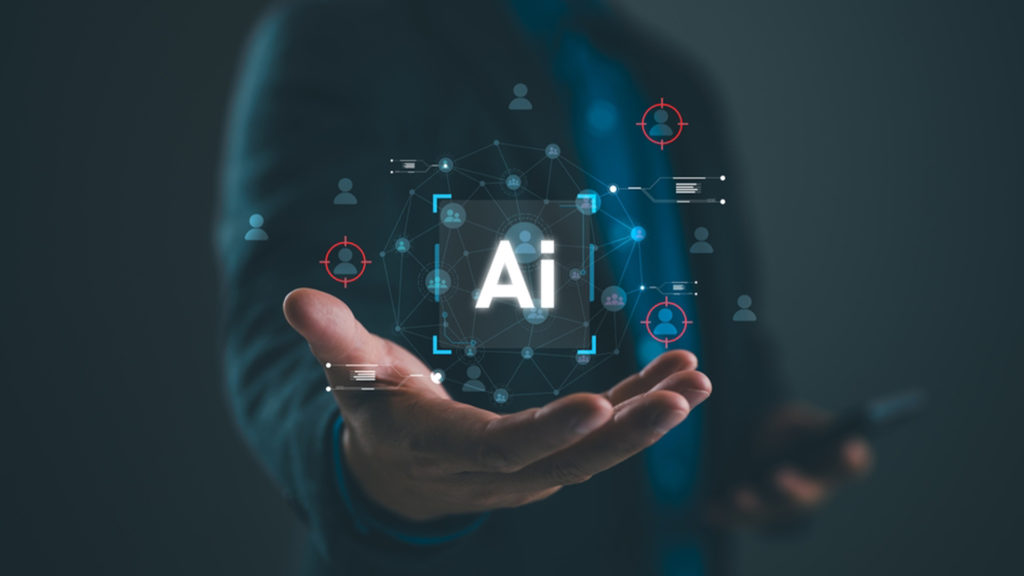Have you ever imagined that a job interview could turn into a face-off with an intelligent machine? In our world, where artificial intelligence (AI) is rapidly integrating into all facets of life, traditional job interviews are no longer enough. Automated analytics and big data have entered the hiring landscape, completely changing the game and raising new questions about the interaction between humans and machines in the workplace. As companies increasingly rely on technology and AI to enhance hiring decisions, job seekers find themselves facing new challenges that require preparation and adaptability to stand out among competitors. Here’s a guide with AI-powered tools that help you practice this type of interview before you experience it.
Changes in Job Interviews Due to AI
AI has brought fundamental changes to various stages of the recruitment process, from resume screening to candidate performance evaluation in job interviews.
Automated Resume Analysis: With AI systems screening resumes, it has become essential for job seekers to align their resumes with the criteria that AI looks for, just as much as they consider HR standards. Recruiters or employers are no longer the first to review resumes; the initial screening and decision-making have shifted to AI. Companies use ATS (Applicant Tracking Systems) to filter the vast number of resumes they receive. If your resume includes accurate, industry-specific keywords, it is more likely to be accepted and advance to the next phase for a human review by the hiring manager.
Video Interviews: In line with automated resume screening, some companies now use AI systems to conduct preliminary job interviews with applicants. These systems use AI to analyze finer details of candidate behavior, from facial expressions and body language to voice tone, providing an initial assessment of the candidate’s suitability for the position.

How to Adapt to AI-Driven Job Interviews
1.Understand How Algorithms Work
To understand what AI looks for, learn how recruitment algorithms function. To ensure your resume passes the initial AI screening, focus on the keywords and skills that the algorithms target. You can identify these keywords by reading multiple job ads for the position you're pursuing, noting the recurring skills companies seek, and incorporating them into your resume. Also, pay attention to design and formatting:
- Use a simple design without embellishments or photos.
- Stick to black text, bolded subheadings, and avoid tables or columns, as most ATS struggle with them.
- Organize resume sections clearly, using keywords appropriately within these sections, and choose a clean, professional font in a legible size.
2.Adapt to Video Interviews
Prepare for the possibility of a preliminary video interview with either an AI system or a hiring manager, especially if you are applying for a remote job. Excelling in video interviews requires more than technical skills. You should present yourself professionally on camera, pay attention to your body language, facial expressions, tone of voice, and attire, just as you would in an in-person interview.
3.Practice AI-Powered Interviews
Many platforms offer training that provides a realistic AI-driven interview experience, helping you understand how questions are posed and responses evaluated, preparing you better for actual interviews.
Technology as a Support Tool, Not a Replacement for Human Insight
Feeling uneasy? Wondering how a machine could judge your performance? There’s no need to worry—no matter how advanced technology becomes, the human touch remains crucial in hiring. While technology streamlines recruitment, it cannot replace the human ability to evaluate qualitative factors such as direct interaction, cultural fit, and alignment with the company's values. Yes, technology supports the recruitment process, but the final decision remains with the human who can comprehend the complex nuances of human behavior.
Dr. Job’s platform understands this well and has directed AI-supported interviews in a way that genuinely benefits job seekers. With Dr. Job’s mock interview simulation, you can practice answering potential interview questions, receive immediate feedback with comments and tips based on your responses, and receive real-time evaluations of your communication skills, relevance, and confidence in a virtual interview setting.
What Dr. Job’s AI-Powered Interview Simulations Offer You
Discover the Toughest Questions that Often Lead to Candidate Rejection
Dr. Job’s training tool covers all aspects of job interviews, from traditional behavioral questions like "Tell us about yourself" and "Why do you want to work with us" to questions requiring in-depth analysis of situations. This helps you build the skills needed to answer questions with confidence and clarity. The tool includes a broad range of questions and scenarios tailored to each user’s field and level of experience, from beginner to professional.
Answer Freely in Your Own Style
Dr. Job allows you to express yourself naturally, moving away from rehearsed responses. With advanced natural language processing, the platform lets you respond in your own words without sticking to stereotypical answers, and you can choose between text or audio responses.
Real-Time Feedback and Analysis
At the end of each training session, you receive a detailed report that covers every aspect of your performance, including strengths, weaknesses, areas for improvement, and even minor mistakes that may leave a negative impression on employers. The evaluation also considers your word choice, thought organization, and tone of voice, suggesting improvements to make them more suited to your responses.
Unlimited Practice Sessions
With Dr. Job’s AI-powered interview simulations, you have unlimited access and can make it a part of your job preparation routine, practicing periodically to track your skill development and address areas still needing improvement.
Frequently Asked Questions About AI-Driven Job Interviews: How to Adapt and Stand Out
How should I prepare for an AI-driven interview?
First, ensure your resume is updated with job-related keywords, and use Dr. Job’s AI-powered interview simulation to practice and improve your answers and performance.
Can AI fairly evaluate my skills?
AI relies on specific data, so there’s room for error. There are times when AI might focus on certain factors, like keywords or facial expressions, which may not necessarily reflect your true potential. Therefore, fairness is achieved when companies use AI systems as support tools, not as the sole decision-making method.
How can I showcase my personality in an AI-evaluated interview?
You can express your personality through your body language, tone, and confidence in answering questions. Don’t hesitate to demonstrate your values and positive ideas, especially when asked about future goals or handling challenges.
Does AI prefer a specific response style in interviews?
AI favors direct, clear responses with realistic examples to back up your claims. Avoid generalizations and focus on providing concise, accurate stories from past experiences. The STAR (Situation, Task, Action, Result) method can help you present well-structured, precise answers.
In today’s business world, job seekers must learn how to engage with AI-powered systems, develop personal skills alongside technical ones—like communication and emotional intelligence—and prepare for interviews by practicing with AI-powered tools like Dr. Job’s interview simulations.







 2025-03-26
2025-03-26
 2024-11-04
2024-11-04
 2024-10-31
2024-10-31
 2023-05-04
2023-05-04
 2023-05-03
2023-05-03